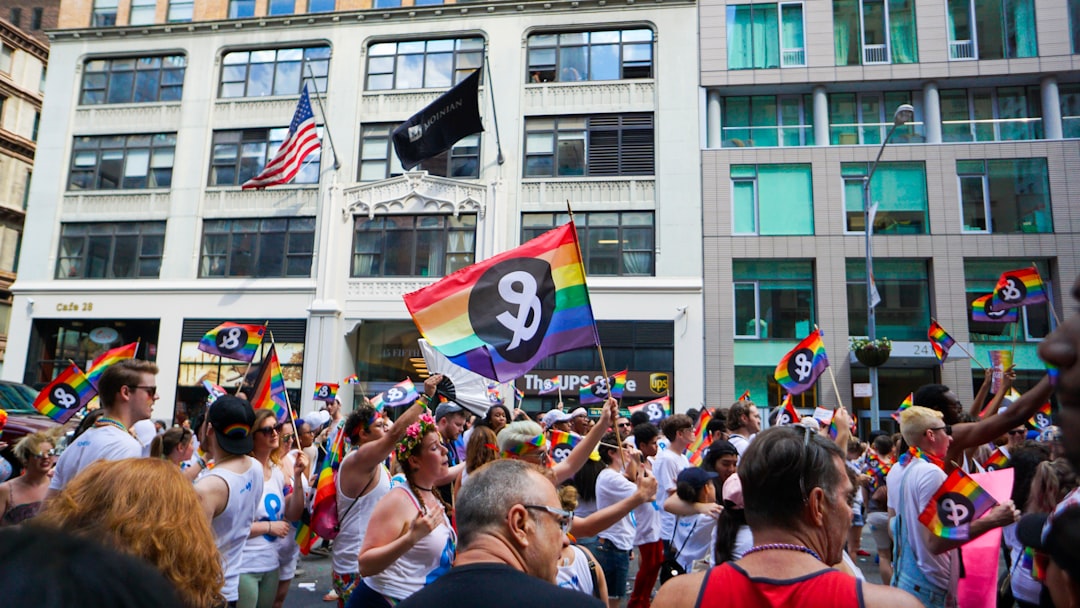The Church Needs Inclusion and Evangelism
What the Woman at the Well Has to Say About LGBTQ inclusion.
Note: This is kind of a short follow-up to a blog post I wrote several years ago. I also did a video version of this essay which is below. Please consider watching it, liking it and sharing it with others.
Back in 2015, First Christian Church voted to become an Open and Affirming Congregation within our denomination, the Christian Church (Disciples of Christ). What that means is that we are a congregation that welcomes LGBT people into the life of our congregation. It means that people just don’t get to come to church, but they are also members and can serve at all levels of the church.
Ever since we voted on this issue, I’ve been wondering “what are we being inclusive for?” What’s the point? Sometimes people answer this question by saying that Jesus was inclusive so we should be too. There is some truth to that, but that answer feels incomplete. Others say that the church must welcome LGBT people into the life of the church in order to be relevant. Again, that makes sense, and yet we aren’t called to be trendy or even relevant, we are called to be faithful to God.
Maybe the one that has the most cache these days is that mainline Protestants and progressive Christians need to be a positive example in a world where people think the church is automatically anti-gay. A pastor in my denomination wrote in very strong terms that the church must make a stand against hate. I would agree that we must be a witness of God’s inclusive love, but I also hope we would do that even if there weren’t more conservative Christians out there modeling a less affirming model.
Why does inclusion matter? To put a more fine point on it, why does it matter that the church be inclusive? What does Scripture teach us?
I think when it comes to LGBTQ inclusion in churches, you have to include evangelism. That might bring people up short. Evangelism has been used to hurt people over the ages, and mainline Protestants tend to run away from evangelism as fast as possible.
But think about this for a moment. If you have a population that has been told by Christians (and no I’m not using scare quotes here because these were faithful people doing sinful things) that they are sinners or even worse, you have to use evangelism to tell the good news, which is what evangelism is all about. Evangel means good news. The good news is Jesus. We tell the good news to LGBTQ people that Jesus loves them for who they are, the people God created them to be: gay, lesbian, bisexual and transgender.
The story that best shows what inclusion looks like biblically is the Woman at the Well. In John 4, Jesus ends up in Samaria. The Samaritans were related to the Jews. Enter the Bible from Luther Seminary has this to say about the Samaritans:
Samaritans were a people who mostly lived between Galilee and Judea and were avoided or shunned by mainstream Judaism. Jesus’ message, however, was so inclusive that he often spoke favorably of Samaritans as he did with the woman at the well (John 4) and in the parable of the Good Samaritan (Luke 10).
Samaritans share ancestry with Jews, but they diverge on some theological points. There is animosity between the two groups. When Jesus meets with the Samaritan woman he is breaking some taboos. He’s talking to a woman and talking to a Samaritan woman. They engage in a conversation where little by little he reveals to this woman who he is until he finally says “I am he.” She then realizes that this is the long-promised Messiah. The story tells us that she leaves her water jar and runs into the village to tell the others. She tells the villagers that she has met someone that knows everything about her even though he is a stranger. She says to them “He can’t be the Messiah. Can he?”
The villagers go out and meet Jesus and they too believe. In verse 42 the villagers say to the woman, “It is no longer because of what you said that we believe, for we have heard for ourselves, and we know that this is truly the Savior of the world.”
Why should the church be welcoming of LGBTQ folk? Why does it matter that our church be inclusive? We do this because Jesus encountered people from all walks of life, including LGBTQ people and through those encounters called them into discipleship and witness. Inclusion means telling LGBTQ people that Jesus loves them for who they are- they don’t have to pretend to be straight to be loved by God. But inclusion doesn’t stop there- it can’t stop there. Inclusion also leads LGBTQ people to witness to the love of God and tell others. When that happens, more and more people, especially LGBTQ people learn that they are loved by God.
In a time when it seems like animus against LGBTQ people is rising the church does need to be a more affirmative and affirming place. But once we welcome people, we also want to help them to become disciples as Jesus taught before he ended his earthly ministry. We want to be places where LGBTQ folk hear the gospel and tell their families and friends who then can hopefully say that the villages said to the Samaritain woman:
“It is no longer because of what you said that we believe, for we have heard for ourselves, and we know that this is truly the Savior of the world.”



